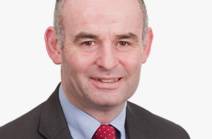Contact
- h.cross@ucl.ac.uk
- Address
-
University College London
UCL- Great Ormond Street Institute of Child Health
Directors Office 30 Guilford St
London
WC1N 1EH

Section Head
Principal Investigators
- Professor J Helen Cross
- Professor Fenella Kirkham
- Dr Vijeya Ganesan
- Dr Ronit Pressler
- Dr Naomi Dale
- Dr Suellen Walker
Contact
- Staff list
- Telephone: 020 7905 2981
- Email: ICH.DN.Programme@ucl.ac.uk
Clinical Neurosciences
UCL Great Ormond Street Institute of Child Health
30 Guilford Street
London WC1N 1EH
 Close
Close


